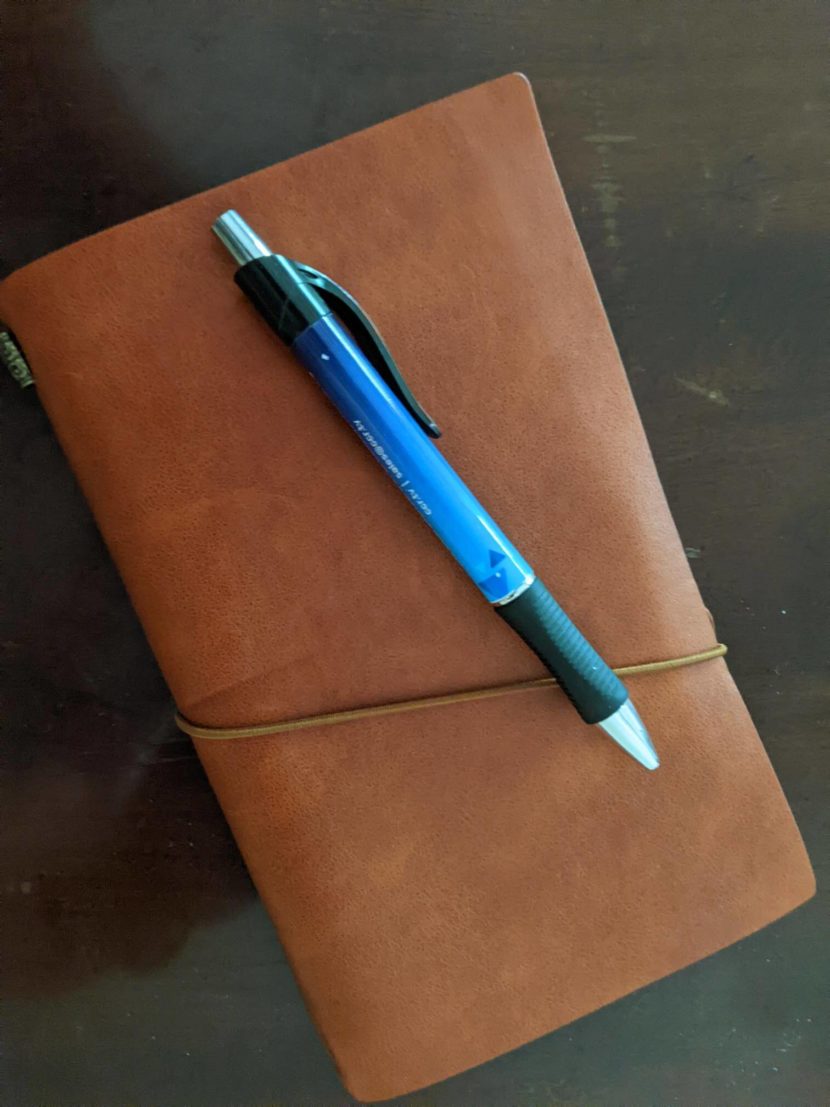When a notebook sits conveniently on your nightstand, for many people it becomes a target for all kinds of writing.
- To-do lists
- Phone numbers from ads
- Usernames and passwords to websites
- Measurements for different projects
- Notes about some kind of computer code or process that you’ve got to do over and over.
- Whatever comes temporarily to mind.
The pages of the dream journal are empty and nature, human especially, abhors a vacuum. That the pages of a journal gradually fills up with all kinds of jottings happens is as natural as the Kreb’s Cycle, photosynthesis, or any other process you can name from nature, probably for some people more than others.
Should you let this happen?
Or that it does is no big deal?
Pros (why you should let all kinds of notes collect in your journal)
The dream journal is kept in a convenient place. It’s easy to make a quick note in it and then move on.
When it comes to things like remembering to do something, you can write it quickly in your journal and then come back to it later. From your dream journal, you can transfer whatever you’ve written down quickly to another list or your phone.
If you write usernames and passwords in your dream journal, they might actually be more secure than if you kept all your passwords in a password log. Written down on paper, they’re likely to be scattered throughout your journal and not immediately obvious to a thief. In a password book, the thief will see page after page alphabetically organized making it much easier to access your accounts. There’s something to be said for security through disorganization.
In retrospect, a to-do list next to an entry for a dream can also shed some light on what the dream was about. Most dreams are about topics that you’re dealing with in your day-to-day life.
Jotting down whatever comes to mind in the moment makes the dream journal a working document. You’re exposed to what you’ve written repeatedly, reinforcing the observations you’ve made.
Cons (why you should stick to journaling dreams or other thoughts in your journal)
When you need the username, password, or other piece of information, you’re likely to have to flip through endless pages to find what you’re looking for. Writing down whatever comes to mind whenever it comes to mind in its pages is a symptom of disorganization.
Writing a lot of other extraneous notes in a dream journal also makes the pages look ugly and random.
Nobody on the journaling website on Reddit who’s displaying their pages does this.
The choice is yours
What you write on the blank pages of your dream journal is going to be your choice and nobody else’s. It’s going to be up to your personal needs and your personality.
If you can’t resist the convenience of writing all kinds of things in your dream journal, perhaps one half of the journal facing one way can be for the dreams and the thoughts you have at night. The other half you can save for the random jottings you find yourself having to make throughout the day.
Another thing to consider is keeping scrap paper for to-do lists, saving passwords on your computer, or planning what you’re going to do to jot down interesting ideas when they occur to you.
For further reading:
What does it mean when your dreams have a similar theme?
Subliminal conditioning can help you remember your dreams.
The soulful frustrations of Candy Jane.
Dream journaling is the least expensive hobby you can pursue
James Cobb RN, MSN, is an emergency department nurse and the founder of the Dream Recovery System. His goal is to provide his readers with simple, actionable ways to improve their health and maximize their quality of life.
We use some affiliate links. If you click on a link and make a purchase, we may receive a commission. This does not affect our opinions.
